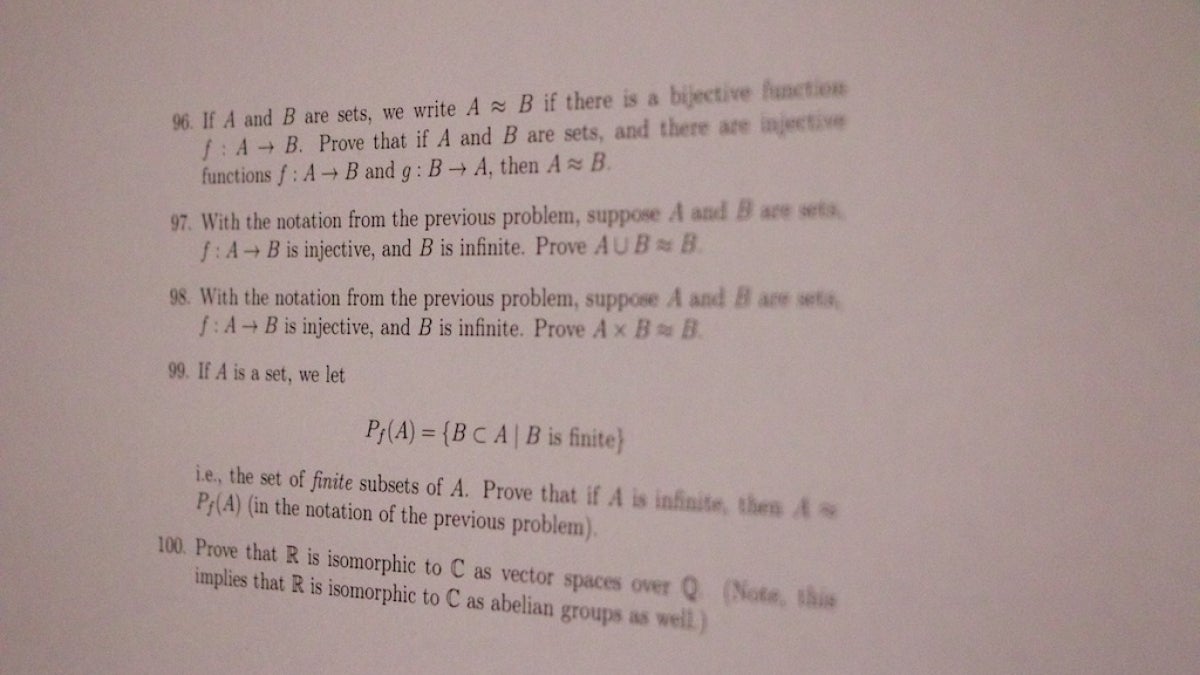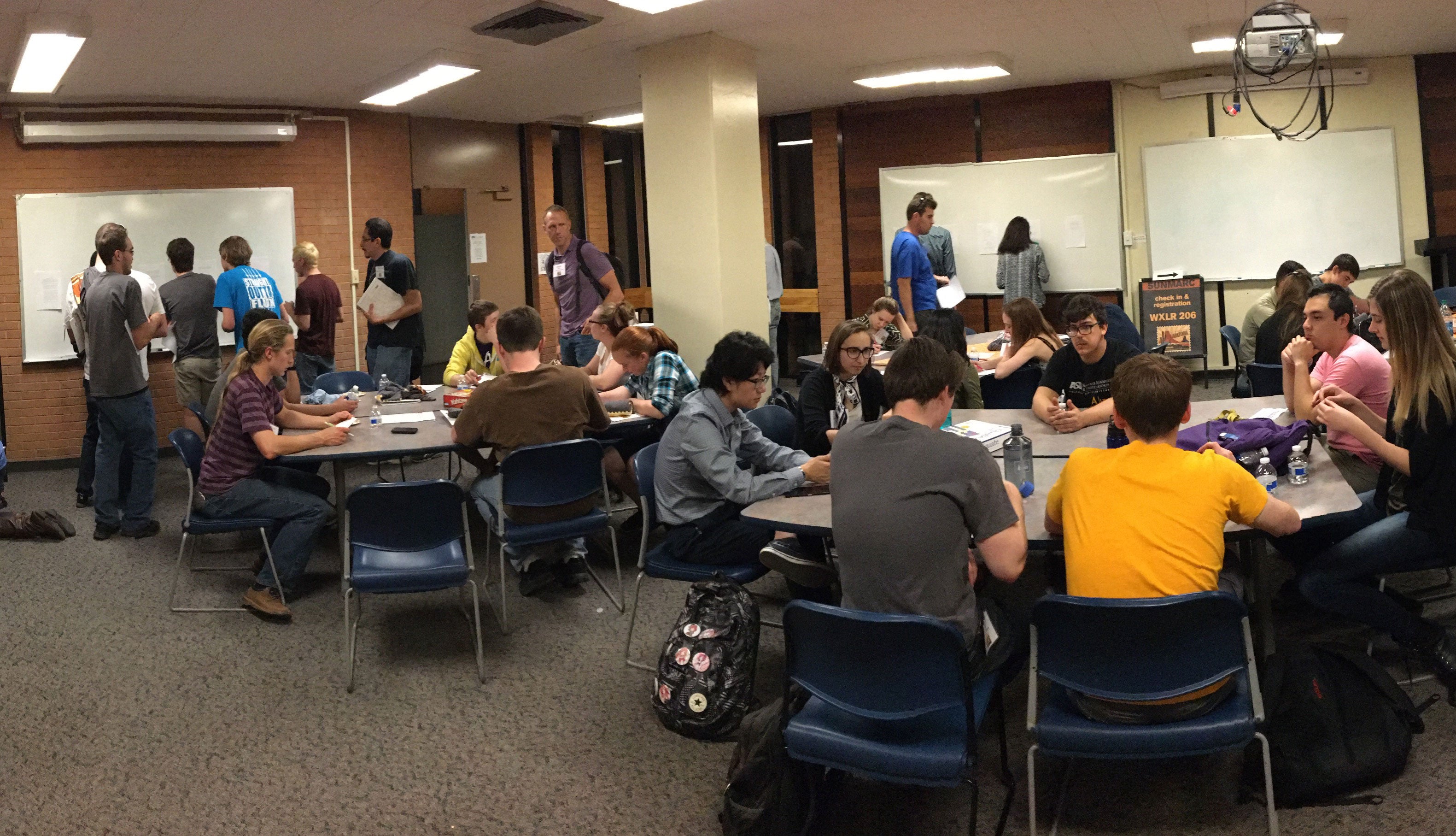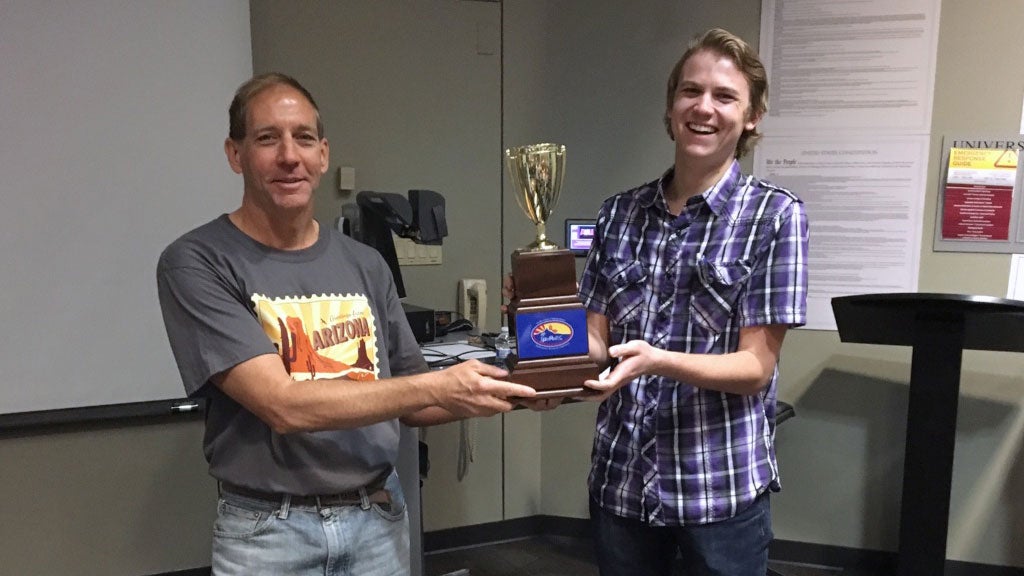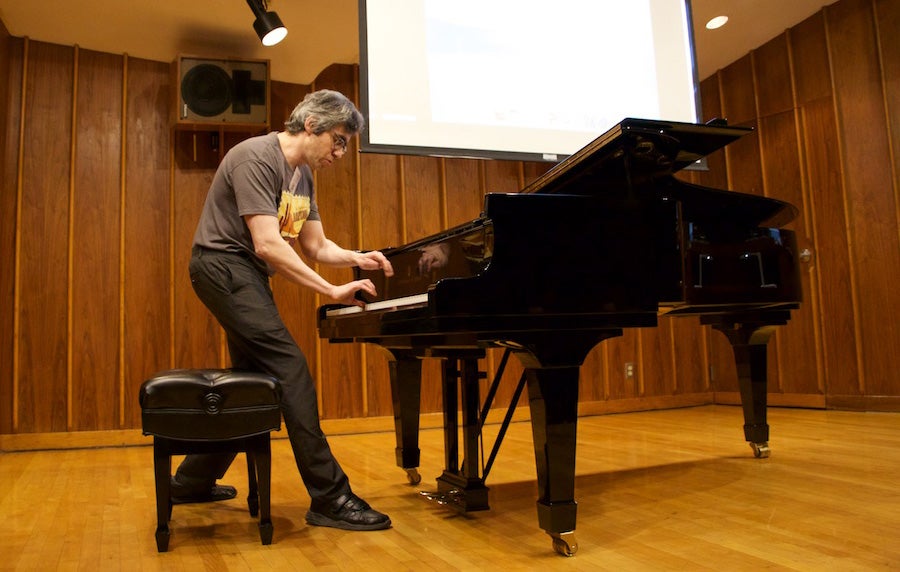Gaming the system and ending up on a white sand beach, watching clouds drift by.
It’s the stuff of dreams and movies, but an Arizona State University math professor brought it to life in a lecture on “Beating The Lottery” Sunday during an annual conference that brings undergraduates and faculty together from across the Southwest to present research in mathematics.
The Southwest Undergraduate Mathematics Research Conference was hosted by the ASU’s School of Mathematical and Statistical SciencesThe School of Mathematical and Statistical Sciences is an academic unit of ASU's College of Liberal Arts and Sciences.. Speakers included Harvard professor Noam Elkies, Williams College professor Susan Loepp and ASU assistant professor Rodrigo Platte.
ASU math professor John Jones, whose research interests are in algebraic and computational number theory, wrapped up the conference with a talk about math and the lottery.
“Maybe you’ll hear about how (the lottery is) a bad place to put your money,” Jones said. “I’m not going to give that talk. ... I’m going to talk about people who win on purpose.”
There were four criteria Jones hewed to in his lecture: They had to be people with a plan; who won repeatedly; who made a lot of money; and who didn’t cheat.
He began with French Enlightenment author, philosopher and wag François-Marie Arouet, aka Voltaire.
Students jump into the challenges of the "Problem Room" as it opens Friday night. They had till Sunday morning to solve the 100 problems posted on the walls of the room (an example of which can be seen in the photo at the top of this story). Photos by Rhonda Olson/ASU
Voltaire and a scientist and mathematician named Charles Marie de la Condamine met at a dinner party. The French government had a monthly lottery to pay down its debts.
“They decided they’d work together,” Jones said. “If you flood the system with a lot of tickets, you have a good chance of winning.”
Voltaire and de la Condamine did just that, and they won. A lot. Every month. Like most good things, it didn’t last.
Winning tickets had to be turned in. Winners habitually wrote things on the backs of their tickets — “Hallelujah,” “Goodbye work,” and so on. Voltaire, being a habitual wiseacre, couldn’t resist writing anti-government slogans on the backs of his tickets. Eventually someone put two and two together.
Voltaire and de la Condamine ended up in court. “The court found they had not violated the rules, so they got to keep the money,” Jones said. Voltaire invested wisely and was a rich man to the end of his days.
ASU math professor John Jones with NAU senior Dustin Story, who won the "Problem Room" competition, scoring an advanced calculator.
More recently, Stefan Mandel was a Romanian economist who figured out a way to beat his country’s lottery. He used a formula for buying blocks of tickets to win. He then moved to Australia, where he formed a syndicate that won by buying all the lottery combinations.
Mandel won the Australian lottery 12 times. The country changed its laws and forced Mandel out of the game. In 1992, he turned his gaze to Virginia.
He waited until the jackpot hit $25 million, printed out more than 7 million tickets, paid $60,000 to ship them to the United States, and then negotiated bulk buys with stores all over Virginia.
“That was the end of it for him,” Jones said. “He lives on an island in the South Pacific to this day, living the dream.”
Jones discussed the odds of number combinations.
“On average, you’re losing 60 cents per ticket,” he said. “The odds of winning a jackpot are miniscule.”
The conference wasn't just an opportunity to build lottery dreams. It covered a range of topics pertaining to mathematics. On Friday evening, Elkies — who was a graduate student at Harvard the same time as Jones, and who became a full-tenured professor at age 26, the youngest in the history of Harvard to do so — explored the overlap of music history and the first few steps of the Euclidean algorithm applied to the logarithms of 2 and 3.
Harvard professor Noam Elkies talks about musical scales and fractions at the Music Building on the Tempe campus Friday evening.
The event also gave students a chance to test their skills. In the “Problem Room,” students competed to solve 100 math problems posted on the walls Friday night through Sunday morning.
Dustin Story, a senior from Northern Arizona University majoring in math and physics, won the competition. He plans to enter a Ph.D. program next fall after graduating this summer.
“I liked it,” Story said of the conference. “I liked the problem-solving competition. It was organized really well. They did a great job.”
More Science and technology

Ancient sea creatures offer fresh insights into cancer
Sponges are among the oldest animals on Earth, dating back at least 600 million years. Comprising thousands of species, some with lifespans of up to 10,000 years, they are a biological enigma.…

When is a tomato more than a tomato? Crow guides class to a wider view of technology
How is a tomato a type of technology?Arizona State University President Michael Crow stood in front of a classroom full of students, holding up a tomato.“This object does not exist in nature,” he…

Student exploring how AI can assist people with vision loss
Partial vision loss can make life challenging for more than 6 million Americans. People with visual disabilities that can’t be remedied with glasses or contacts can sometimes struggle to safely…



